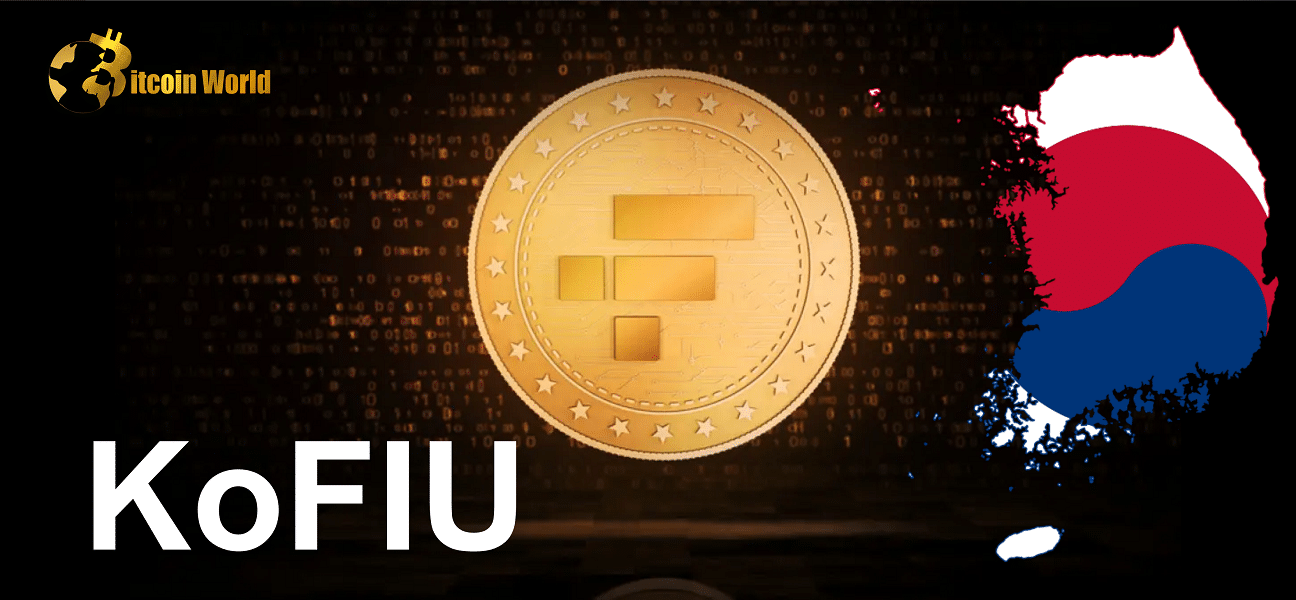The cryptocurrency world is still reeling from the dramatic collapse of FTX, and the ripples are being felt globally. South Korea, a nation with a significant crypto market, is taking a proactive stance. Following the liquidity crisis triggered by FTX’s native token, FTT, South Korean financial authorities are now digging deep into domestic crypto exchanges, focusing on a potentially risky practice: self-issued cryptocurrencies.
Why is South Korea Scrutinizing Self-Issued Crypto Tokens?
To understand the current investigation, let’s rewind a bit. The FTX saga unfolded rapidly, with its exchange token, FTT, at the heart of the turmoil. When concerns arose about FTX’s financial health and its reliance on FTT as collateral, a massive liquidity crunch ensued, ultimately leading to the exchange’s downfall and Chapter 11 bankruptcy filing.
South Korea’s Financial Intelligence Unit (KoFIU) is now concerned that similar vulnerabilities might exist within their own crypto ecosystem. They’ve officially requested cooperation from local exchanges to investigate their records concerning self-issued exchange tokens. Think of these tokens as cryptocurrencies created and issued by the exchanges themselves.
The core issue? Potential conflicts of interest and financial instability. If an exchange heavily relies on its own token for operations or as collateral, a drop in the token’s value – as seen with FTT – can trigger a cascading crisis.
What’s the Legal Landscape in South Korea?
South Korea isn’t new to crypto regulation. The Act on Reporting and Use of Specified Financial Information already prohibits the sale or exchange of virtual assets issued by an exchange or its affiliates. This regulation is a critical backdrop to the current investigation. KoFIU is essentially ensuring that exchanges are adhering to these rules and haven’t been engaging in prohibited activities.
The Spotlight on FLAT Token and Flata Exchange
While KoFIU hasn’t named specific exchanges under investigation beyond confirming the general inquiry, local news sources have pointed fingers at Flata Exchange and their token, FLAT. Here’s what we know:
- FLAT Token: This cryptocurrency was launched and listed on Flata Exchange back in 2020. It’s still reportedly traded on the platform today.
- Flata Exchange: Speculation suggests that Flata Exchange is the organization behind the FLAT token, making it a prime example of a self-issued token within the South Korean market.
It’s important to note that this is currently speculation. KoFIU hasn’t officially confirmed Flata Exchange as a specific target of their investigation. However, the situation highlights the kind of scenario regulators are concerned about: exchanges potentially propping up their operations with their own, potentially volatile, tokens.
Are All South Korean Exchanges Under Suspicion?
Interestingly, KoFIU has clarified that their initial focus is not on all 31 exchanges in the nation. The good news for users of major platforms is that KoFIU has confirmed that South Korea’s five fully licensed, fiat-to-crypto exchanges do not list self-issued tokens. This suggests the investigation might be more targeted towards smaller or less established exchanges.
Digging Deeper: Investigating FTT Transactions
Beyond self-issued tokens, South Korean regulators are also scrutinizing past FTT transactions on domestic exchanges. This is a direct response to the FTX collapse and aims to understand the extent of the damage within the South Korean market. Reports indicate that domestic exchanges may hold FTT worth around 2 billion Korean won (approximately $1.47 million USD).
The investigation into FTT transactions likely aims to answer critical questions:
- Exposure: How much exposure did South Korean exchanges and their users have to FTT?
- Impact: What was the financial impact of the FTT crash on the South Korean crypto market?
- Risk Management: Were there adequate risk management protocols in place concerning FTT trading and holdings?
Lessons from the FTX Debacle
The FTX collapse serves as a stark reminder of the risks inherent in the cryptocurrency space, particularly concerning centralized exchanges. Key takeaways from this situation, now being considered by regulators globally, including in South Korea, include:
- Transparency is Paramount: The lack of transparency in FTX’s operations and balance sheets was a major contributing factor to its downfall. Regulators are likely to push for greater transparency from crypto exchanges.
- Risk of Self-Issued Tokens: The FTT situation highlighted the inherent risks of exchanges relying on their own tokens. This is a critical area of concern for regulators worldwide.
- User Protection: Protecting users’ funds is the ultimate priority. The FTX case underscored the potential for customer funds to be misused or lost when exchanges face financial distress.
- Need for Robust Regulation: The FTX collapse has strengthened the argument for clear and robust regulation of the crypto industry to mitigate risks and protect investors.
What Does This Mean for the Future of Crypto in South Korea?
South Korea’s proactive investigation signals a commitment to safeguarding its crypto market and investors in the wake of the FTX crisis. While the investigation may create some short-term uncertainty, it ultimately aims to build a more secure and sustainable crypto ecosystem in the long run.
By scrutinizing self-issued tokens and FTT transactions, KoFIU is taking concrete steps to prevent similar crises from unfolding within South Korea’s borders. This move could potentially lead to stricter regulations and greater oversight of crypto exchanges, ultimately fostering more confidence and stability in the South Korean crypto market. As the investigation unfolds, the global crypto community will be watching closely, as South Korea’s response could set a precedent for how other nations address the systemic risks exposed by the FTX downfall.
Disclaimer: The information provided is not trading advice, Bitcoinworld.co.in holds no liability for any investments made based on the information provided on this page. We strongly recommend independent research and/or consultation with a qualified professional before making any investment decisions.




